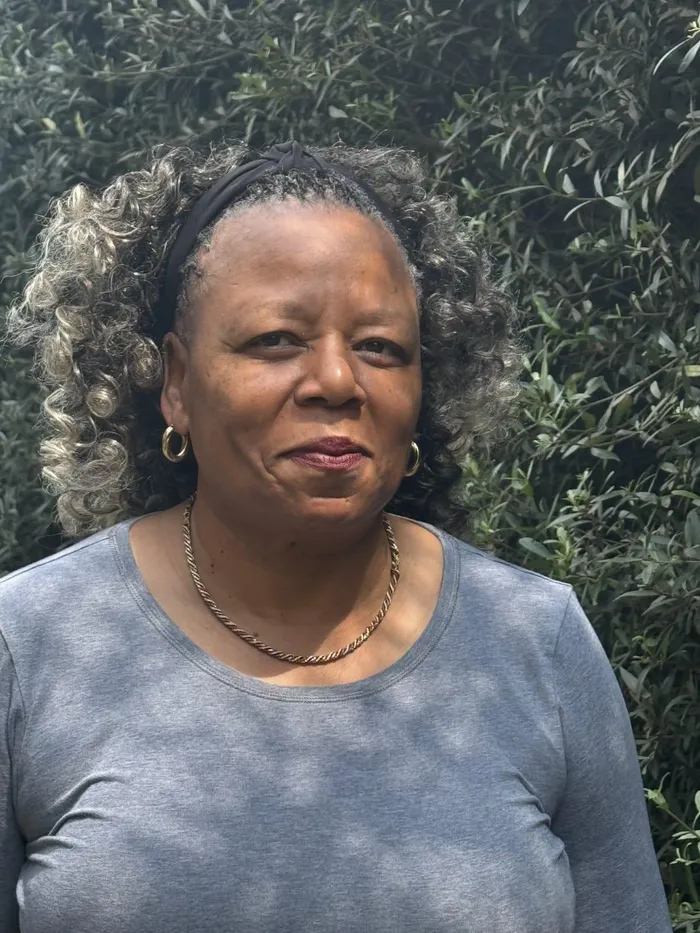How COPESSA is Combatting Gender-Based Violence in Soweto

Dr Nobulembu Mwanda.
Image: Supplied
What began as a response to a child’s trauma has become a powerful force for healing, prevention, and community change, proving that with care, courage, and collective action, gender-based violence can be stopped before it starts.
In the heart of Soweto, COPESSA (Community-based Prevention and Empowerment Strategies in South Africa) has been quietly advocating healing, dignity and prevention for 21 years.
Formed in response to a national outcry against child sexual violence, this community-based organisation has grown into a cornerstone of support for women, children, and families facing trauma, neglect, and violence.
But COPESSA's story is not just about programmes and services. It was started by Dr Nobulembu Mwanda, affectionately known as Dr Nobs, a social activist who believes that a better, safer world is possible.
A study done by South Africa’s Human Sciences Research Council on gender-based violence (GBV) underscored the crisis, societal attitudes towards GBV and patterns of behaviour.
In a sample of 10,000 men and women across all nine provinces, 36% of women said they experienced physical or sexual violence at some point in their lives, while 24% reported experiencing violence by an intimate partner.
The study highlighted the need for more care centres, like COPESSA, which offer comprehensive support to GBV survivors and education and counselling for perpetrators of violence.
“In 2000, South Africa was shaken by the brutal rape of a six-year-old girl in Alexandra,” said Nobs. “This crime captured the nation's attention. It laid bare the deep structural and social issues underpinning violence in our communities.”
That child, known publicly as Lerato (not her real name), became the face of a national reckoning. In response to the rape, a group of women from South Africa’s music and creative industries launched iSililo – A Woman’s Cry, led by the late Dr Sibongile Khumalo. Through powerful community dialogues (iindabas), they began asking hard questions: How do we stop this? What needs to change?
Out of these conversations came a call to action not just to mourn, but to rebuild. COPESSA was born from that call.
“We knew from the start that this couldn’t just be about responding after harm was done,” said Nobs. “We needed to address the root causes. That meant listening to the community, engaging cultural beliefs, and building long-term prevention strategies.”
The early days were not easy.
“We didn’t have much money,” Nobs admits. “There were many months without salaries. But we had faith and we had community.”
With the backing of women from the iSililo campaign and support from fundraising events like the Table of Peace and Unity, COPESSA began to grow. Community members were consulted, and programmes were designed around their real needs and lived experiences.
“We believed then, and still do, that it’s more sustainable to teach people how to fish than just give them the fish. But one story challenged even that.”
She recalls a teenage girl who came to the centre asking for food.
“She had lost both parents. Her younger sister was HIV-positive and on treatment. They hadn’t eaten in three days. Every evening, she would pretend to cook, boiling water to create the illusion of a meal, and send her sister to school the next day, hoping the school feeding programme would keep her going.”
That moment shifted COPESSA’s approach.
“We realised that prevention can’t happen on an empty stomach. So, while we continue to teach skills, we also give food parcels when we can. It’s not an either-or situation; it’s both.”
Today, COPESSA offers a wide range of psychosocial services, community mobilisation, youth development, and economic empowerment initiatives.
The Women of Worth Sewing Circle teaches women how to turn sewing into a livelihood, including producing the Biyela Suit, a portable shelter or sleeping bag that can be used as a jacket and bag as well, ideal for the homeless and even outdoor enthusiasts.
Ongoing community dialogues engage men and challenge cultural norms that contribute to GBV.
Parenting support, counselling, and school-based interventions work to prevent violence before it happens.
Over the years, COPESSA has supported thousands of women, children, and families. Some, like one woman who received counselling after a traumatic childhood and challenges raising a child with developmental difficulties, have gone on to build schools and lead community projects.
One young man, once supported by COPESSA, is giving back with the same strength that was once poured into him: “When I came to COPESSA I was so broken. I went through counselling and other interventions. Now I am engaged and I run GBV programmes for organisations.”
"Preventing violence against women and children requires an all-of-society approach. It cannot be left to the government and a few non-profits,” said Nobs.
She’s also passionate about bringing men into the conversation: “Yes, men are often the perpetrators, but we cannot paint them all with the same brush. Many want to help. At COPESSA, we bring men into the conversation as allies, not enemies, through open dialogue that challenges harmful norms and builds new ones.”
As COPESSA celebrates 21 years, the organisation remains firmly rooted in Soweto, but its impact extends far beyond.
“This milestone is not just about us,” said Nobs. “It’s about everyone who has walked through our doors broken, hurting, or uncertain and found something that helped them begin again.”
From its origins in grief and outrage, COPESSA has grown into a sanctuary of hope, dignity, and transformation. Through tireless work, deep community partnerships, and an unwavering belief in human potential, it continues to heal wounds, shift mindsets, and build futures.
And as the next chapter begins, one truth remains: healing is possible - when we choose it together.
DAILY NEWS
Related Topics: